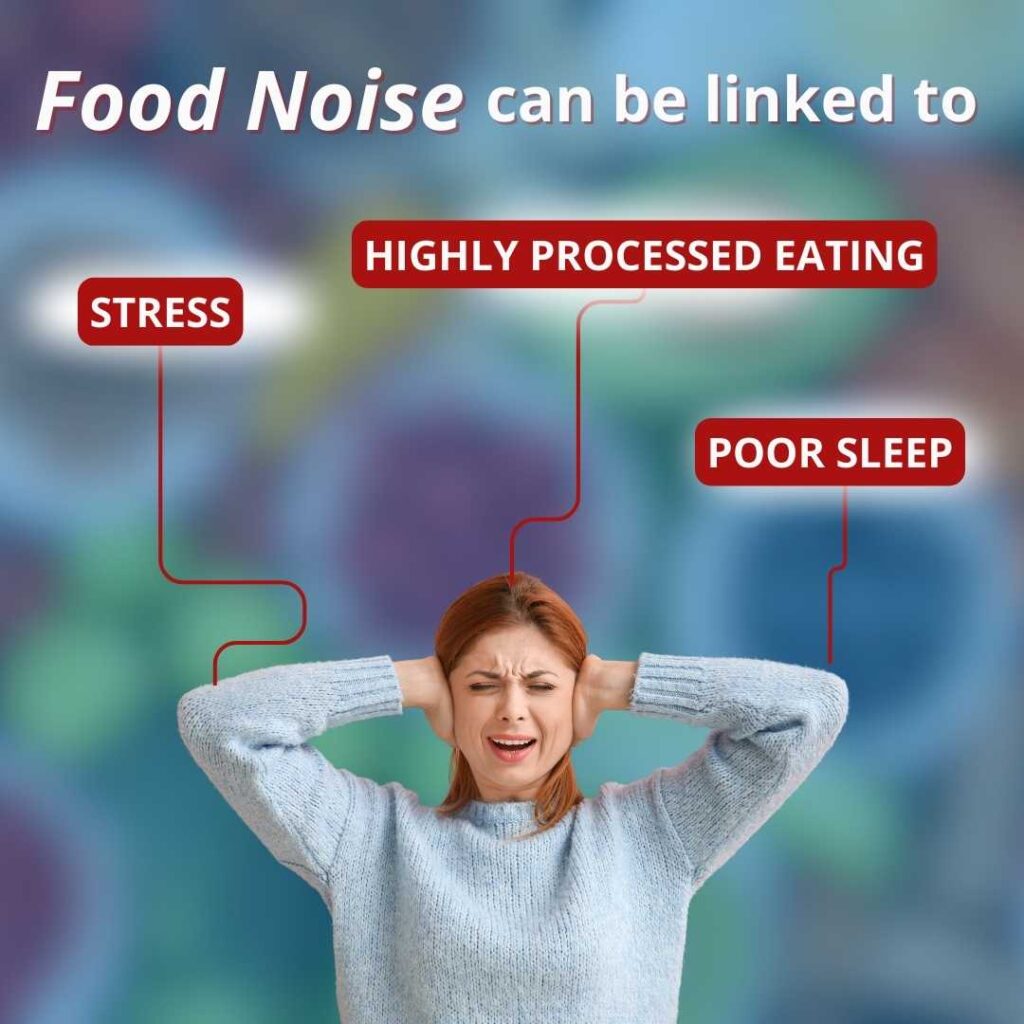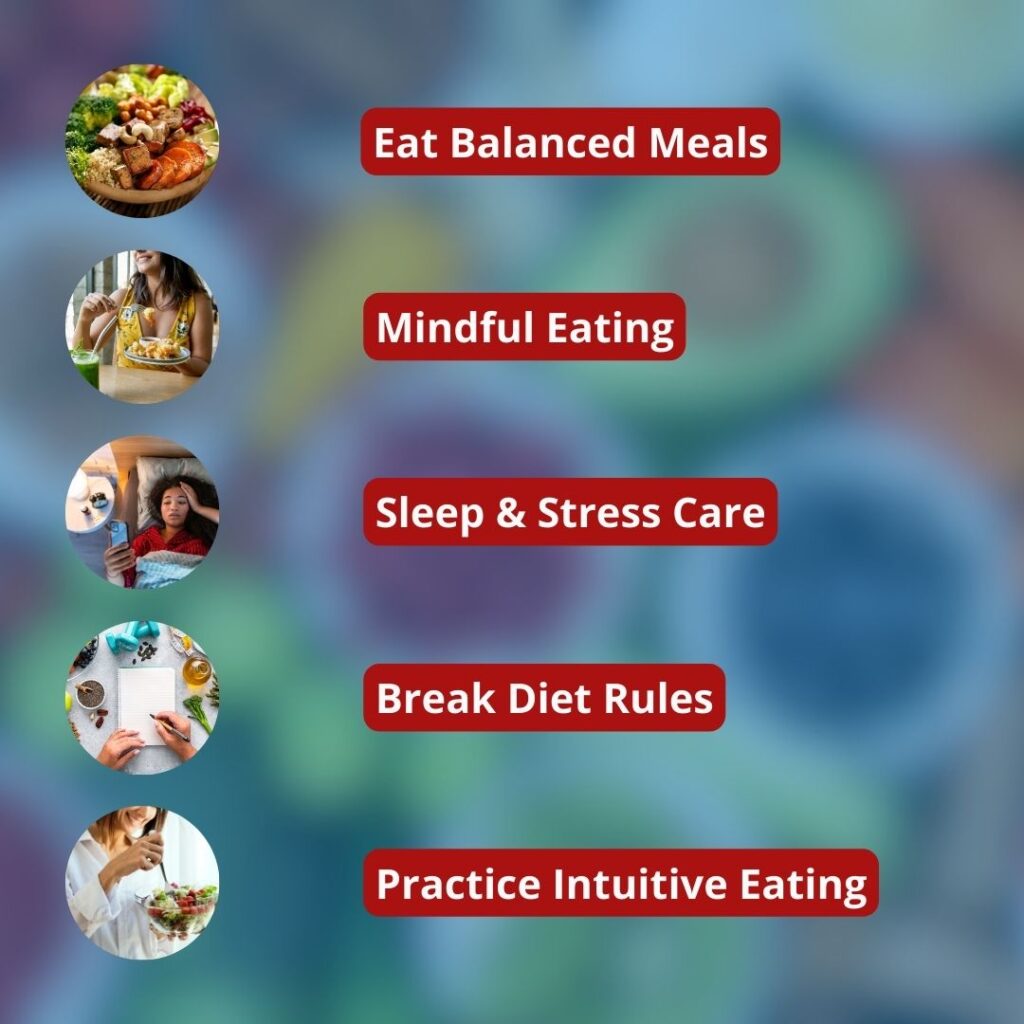If you’ve been wondering how to get rid of food noise, you’re not alone. Food noise is the constant stream of thoughts about eating – what you should eat, what you shouldn’t, and when your next meal will be. This mental chatter can make food feel stressful instead of enjoyable and may leave you feeling disconnected from your body’s natural signals.
The good news is that you can quiet the noise and build a healthier relationship with food. By practicing intuitive eating, you learn to trust your body’s hunger and fullness cues instead of relying on strict diet rules. This shift not only reduces food noise but also helps you feel more confident, energized, and in control of your wellness journey.
What Is Food Noise?
Food noise describes the distracting, repetitive thoughts about food that can take over your day. Instead of eating when you’re truly hungry, you may find yourself:
- Thinking about your next meal even if you just ate
- Feeling guilty about food choices
- Following rigid diet rules instead of your body’s cues
Recent studies even show that food noise can be linked to stress, poor sleep, and highly processed eating patterns. It’s not just about willpower, it’s about resetting your habits and mindset.

Why Learning How to Get Rid of Food Noise Matters
Food noise can make it hard to know when you’re actually hungry, when you’re full, or when you’re just eating out of habit. If left unchecked, this constant chatter can:
- Lead to overeating or restrictive cycles
- Increase stress and guilt around food
- Disrupt energy, sleep, and mood
Getting rid of food noise means you can finally enjoy meals without obsession, guilt, or distraction and focus on living your life.
5 Practical Strategies on How to Get Rid of Food Noise
1. Build Balanced, Satisfying Meals
Meals with a mix of protein, fiber, and healthy fats keep you fuller longer, which reduces obsessive food thoughts.
2. Practice Mindful Eating
Slow down and notice textures, flavors, and your body’s cues. This builds trust between your mind and body, reducing the noise.
3. Prioritize Sleep and Stress Management
Poor sleep and high stress increase cravings and mental food chatter. Aim for 7–9 hours of rest and stress relief activities like yoga, journaling, or walks.
4. Challenge Diet Rules
Rigid rules often fuel food noise. Instead of labeling foods as “good” or “bad,” give yourself permission to enjoy all foods in moderation.
5. Try Intuitive Eating Practices
Intuitive eating helps you reconnect with hunger and fullness cues. It shifts the focus from external rules to internal wisdom.

How Intuitive Eating Helps Quiet Food Noise
Intuitive eating is a flexible, evidence-based approach that emphasizes:
- Eating when you’re hungry and stopping when you’re full
- Listening to your body instead of diet trends
- Finding satisfaction and joy in food
When practiced consistently, intuitive eating teaches you to tune out the food noise and focus on what really matters: energy, strength, and overall well-being.
Should You Seek Extra Support?
For some people, food noise can be intense. If it feels overwhelming, you may benefit from coaching or professional guidance. A weight loss or wellness coach can:
- Provide accountability and encouragement
- Help you develop sustainable food habits
- Guide you toward balance without quick fixes
Conclusion
Learning how to get rid of food noise is not about silencing your hunger, it’s about creating space to listen to your body’s natural signals. With mindful strategies and intuitive eating, you can free yourself from the constant chatter and develop a healthy, confident relationship with food.
Ready to see if coaching is right for you? At Mile High Fitness & Wellness, we focus on sustainable habits, stress management, and long-term success, not quick fixes. Reach out today to schedule a consultation and explore how intuitive eating can help you build a healthier, more confident future.



